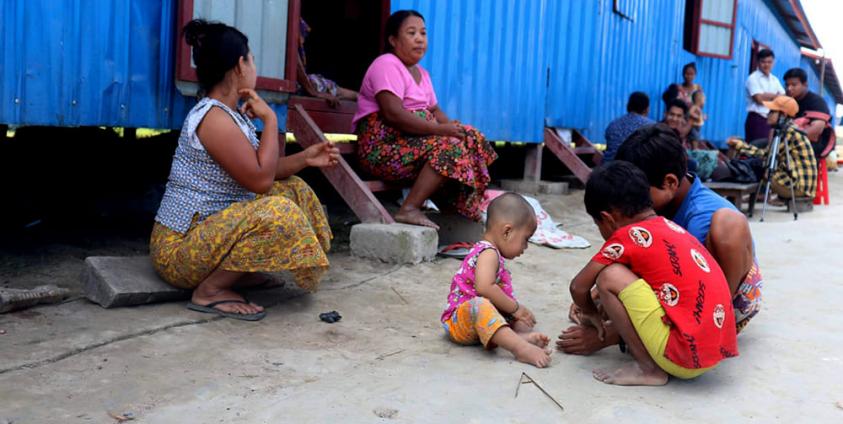More than 10,000 internally displaced people (IDPs) in Arakan State returned home of their own volition in August.
The IDPs returned home because they were worried about being infected with the virus amid the ongoing Covid-19 pandemic. The IDPs faced livelihood hardships as the number of donors to the IDP camps has decreased and they also want to make a living in their villages as the dry season approaches, according to the Rakhine Ethnics Congress (REC), which conducts ongoing censuses of IDPs in Arakan State.
“They are no longer part of the IDPs because they have returned to their villages from the IDP camps. They will no longer receive international aid. They may or may not get support from the government. They may be able to get support from private donors,” said Ko Zaw Zaw Tun, secretary of the REC.
“We are worried about the dangers of landmines in some places. We are concerned that if they [IDPs] return unscathed for some reason, they will not be able to return to the IDP camps,” he added.
He added that IDPs living in villages engulfed by fire and landmine-prone areas should not return home for the time being.
Most of the IDPs who returned home on their own were from townships such as Kyauktaw, Mrauk-U and Ponnagyun, with a few from Buthidaung, Rathedaung and other Arakan State townships.
A local charitable group in Arakan State provided the IDPs who have reportedly returned home with 98 sacks of rice.
“We provided the returnees with rice as they are currently unemployed. They [IDPs] contact us when they need help, and we support them as much as we can. We donated rice bags to the IDPs from Rathedaung, Kyauktaw and other townships,” said an official from the philanthropic group.
Some say the government has a responsibility to ensure that IDPs return to their homes, and that demining, rehabilitation work, removal of troops stationed near the villages and a cessation of hostilities must be undertaken by the government.







